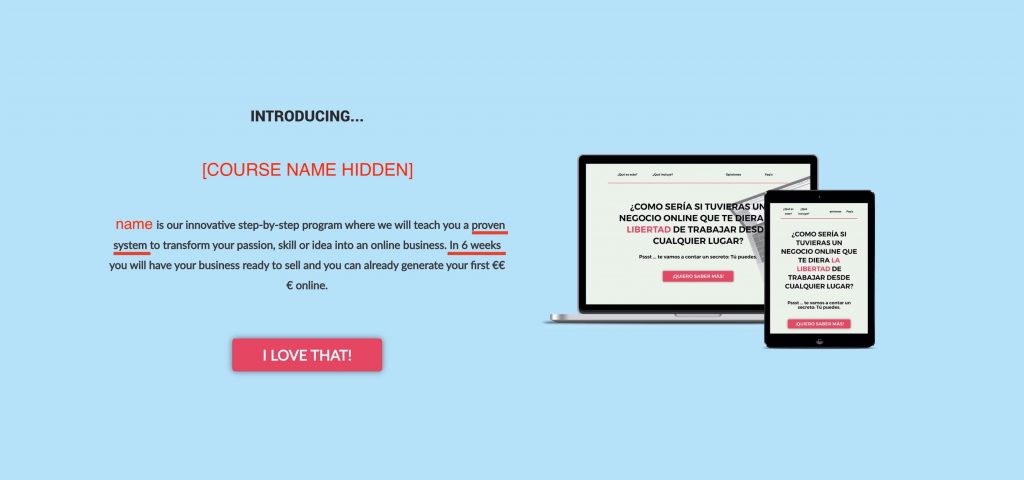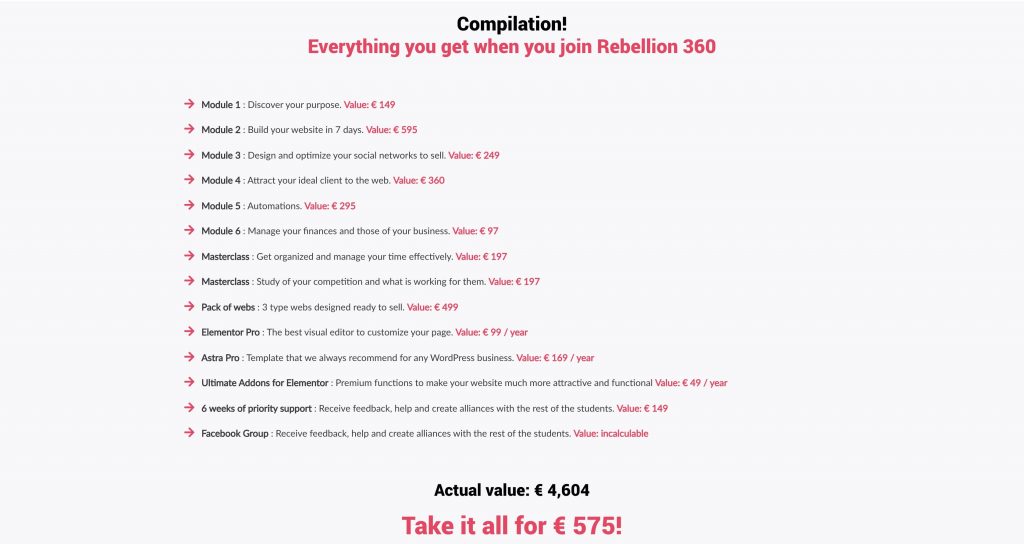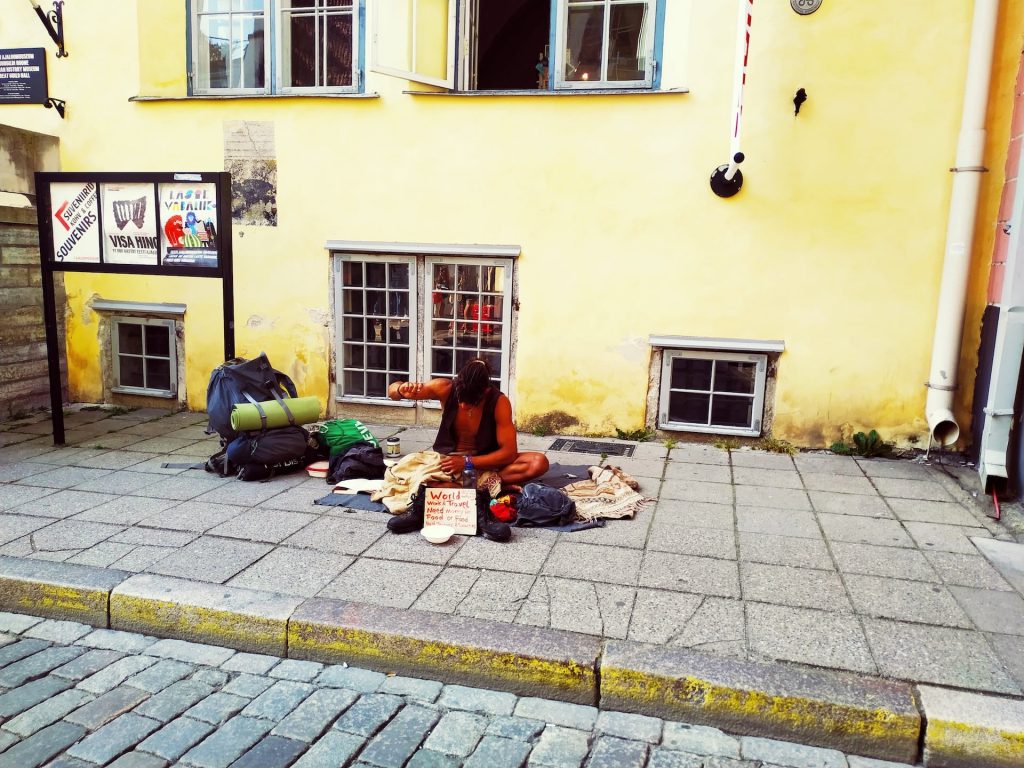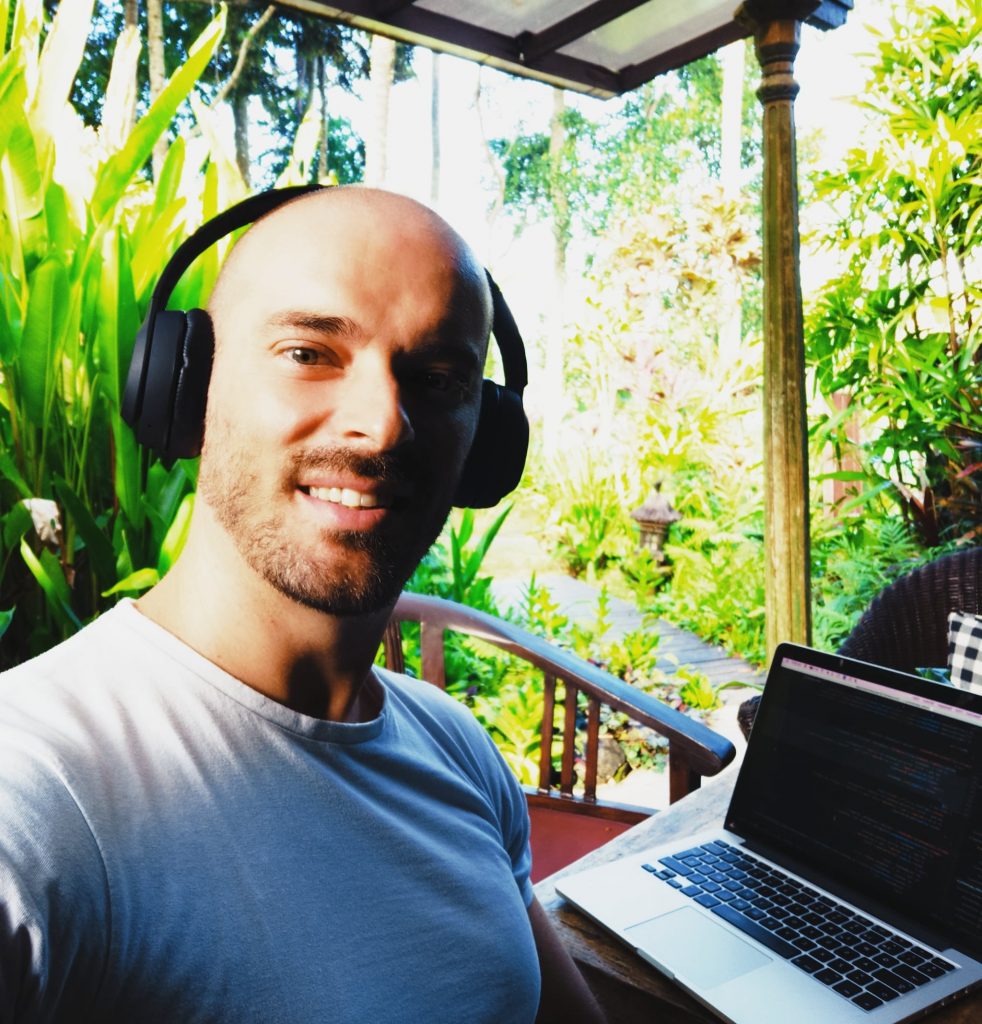The Digital Nomad Scam

I consider myself a digital nomad. I have no problem with this tag. However, much like Low did with the genre they pioneered, slowcore, most true digital nomads I know repudiate that label. Why? Because the term has been abused to the point that it’s now associated with a whole ecosystem of scammers who live out of “teaching” others how to become a digital nomad.
If you want to become a digital nomad, and are considering paying for a course, nomad school, or coaching sessions, you may want to read this post first.
Don’t believe the digital nomad bullshit
I hope you already know this, but you should not believe what you see on Instagram or read on the internet. No, not even what’s written on this blog. You should always apply common sense and critical thinking when someone’s promising you something, especially if they are sharing their “secrets” with you… for a price, obviously.
So when you read something like (this one’s translated from a different language):

That should probably remind you of the “work from home” scams that were so popular a decade ago. Truth is, there is a whooooole lot of people trying to teach you how to become a digital nomad, and linking that lifestyle with happiness, wealth or financial independence.

Of course, these “School packs” or compilations always include lots of courses that are mostly bullshit, contain information readily available for free, or can be bought for a couple of dollars in places like Coursera or Lynda.

Also, all these courses offer you to start earning money in a few weeks even if you don’t have any business idea or experience at all, know shit about computers, and even work 8 hours a day on a 9 to 5 job. Let me tell you, dear reader, as an entrepreneur and computer science engineer who has tried (and failed) repeatedly to launch a successful business in the past, that this is a load of s**t.
It’s also important to realize some facts about these so-called “digital nomads” teaching you how to become one, from my experience meeting them during the years:
- Most of them are not even digital nomads. They traveled for one year or two at most, visiting as many places as possible, and now are trying to reap the benefits of that period.
- None of them have a real business. Their business is “teaching others” how to become digital nomads.
- Only a few of them are able to survive with their digital nomad courses, online classes, and schools. Many are still faking it until they make it. Others have a normal job nowadays or even live with their parents.
But you write about how wonderful it is to be a digital nomad!
Yes, I do. I write about how quitting my job was probably the best decision of my life. I write about how starting my company in Estonia changed my life, and how becoming a digital nomad made me free.
But I write about it from my own point of view. I don’t pretend this is for everyone. I don’t claim this is the solution to all problems or the key to happiness. On the contrary, being a digital nomad can lead to loneliness, and you must be willing to make some trade-offs and take care of things you used to take for granted.
And most importantly, I don’t charge others for courses on how to become a digital nomad. That’s like charging money to teach others how to be a punk-rocker or an indie writer.
What’s the digital nomad scam?
The digital nomad scam is an almost pyramid scheme that takes advantage of the dreams, illusions, and desires of people who want to change their lives. We live in alienating societies, and a lot of folks feel miserable, trapped in their daily routines, and a job they hate.
Unfortunately, there are individuals who prey on the miseries of others by offering you happiness, wealth, and financial independence without effort, while traveling and drinking mojitos at a tropical beach. Most of these scams take the form of courses, digital nomad schools, coaching programmes, etc.
Fortunately, the course depicted above is “just” 575€. However, there are people out there completely ripping off others with 3000€ courses, sometimes even more. And for that to work, you need a set of minions, that paid for your course before, and now earn money as affiliates recommending it, swearing it’s not a scam. Hence the “almost pyramid” definition.
The worst thing about these courses is the fact that they sell the digital nomad lifestyle –or traveling– as the ultimate solution for everything. You become a digital nomad, and you are suddenly rich and happy, traveling the world without worries, laying down at the most exclusive beaches, which have been previously emptied of tourists so that you can enjoy them…

If it was that easy…
Now, let’s get real. How many people do you know with that life? (don’t count those selling those courses). Why? Because it is a secret? Because they didn’t buy the course? Because their “fears” prevented them from taking action?
Do you think starting a blog on WordPress, going wild on SEO and marketing, and putting affiliate links will make you rich?
Do you believe you can easily make a living by starting a drop-shipping business while traveling through South-East Asia to “save money”?
Let me tell you a little secret. Making a living with a blog or a drop-shipping business is F****NG HARD. Chances are, you will fail. Repeatedly.
It took me years since I quit my job to get a prosperous business running. And I failed A LOT. Luckily for me, I never bought a digital nomad course and started traveling without a clear business prospect. Otherwise, I may have ended up like this begpacker on the streets of Tallinn, begging for food.
When I left my job, I worked hard as a freelancer for three years. Only when I had a proper business as a freelance developer and a good source of income, I decided to “take the leap” and become a digital nomad.
Being a digital nomad is not a job
Which takes me to one of my main rants about the digital nomad scam. Being a digital nomad is not a job. You don’t “become a digital nomad” to escape your work, or to gain financial independence.
Being a digital nomad is a lifestyle. And in order to maintain this lifestyle, you need a source of income. It can be anything. You can work as a remote developer, if your company allows it, or you can have a business of your own. You can be a freelance designer, or earn money from affiliate links and passive income, but that does not happen magically when you become a digital nomad.
You must be aware also of some facts:
- 90% of startups fail (and close) during their first year of existence. I have experienced this myself. I founded three startups until I got sick of it and started a business instead.
- Most drop-shipping businesses fail. My partner and I have experienced this firsthand.
- Most influencers only make pocket money. Compare this to being a rock star. How many of your friends play an instrument or are in a band? How many of them are rich?
- Affiliate links won’t make you rich unless you work really hard for years and are both lucky and good building an audience. It is also not a reliable source of income, and I know this from my own experience.
- Adsense and advertising on your website require a humongous audience, and that’s hard to achieve and keep.
Now, earning money from these things I mentioned above is not impossible. I have managed to earn 2400€/mo as an affiliate. But it is not easy, it is not reliable, and it depends on factors that cannot be taught, like being in the right place talking about the right thing at the right moment.
Most things these courses teach you don’t work anymore. Not at least the way they teach them to you. They worked some years ago, when just a few people were doing it, and there was almost no competition. Others are just basic stuff to get started, but thousands of people have followed that same path before you and failed. No course can guarantee that your business will be successful. Otherwise, we’ll all be millionaires.
So if you want to be a digital nomad, find an online job, found a business, or start something nobody is doing already, and make sure to get a reliable source of income out of it first. If you start traveling and try to kick-start your business while on the road, you are going to fail miserably. Maybe not, but the odds are against you.

Being a digital nomad is not sunny beaches and surf
When they sell you these dropshipping and affiliate income courses, everything seems to work like magic.
You find a niche to sell things with a provider from China, start an e-Commerce on Shopify or Prestashop, and bam! Or you start a blog, grow your audience with a few SEO tricks, and then start monetizing it.
Life is so good, you are earning money without working, and you can spend your days lying on the beach, mojito in hand.
That does not work. It’s that simple. I’m not stating here that dropshipping is a scam, or that earning passive income is impossible. I am telling you that 95% of real digital nomads are not lying on Surin beach, Thailand, with nothing to do. They are most probably at a co-working space in Chiang Mai, because (a) the city is cheap, and (b) they need to work. Like everybody else.
That does not mean we are always working. We work more or less depending on our businesses or jobs. We, of course, go to the beach from time to time. We visit fantastic places, know new cultures and people, and discover amazing things. That’s one of the best things the digital nomad lifestyle offers. If forced to chose, I would rather work from the Titi Batu club in Bali than from a grey office in Spain, yes.
But please, don’t buy that sunny beach bullshit.
Being a digital nomad is not the key to happiness
I have mentioned before that being a digital nomad can be a lonely path. I am lucky to travel with my partner, but some people struggle with loneliness or social disconnection.
Also, being a digital nomad won’t make your problems disappear. If you are unhappy or your life is miserable, becoming a digital nomad won’t change that. You should not run away from your problems, because they will follow you.
… I hear we live with what we run from
The Notwist – Gravity, from their album The devil, you and me.
The same world, but better somewhere else
If you are unhappy because you hate your job, you hate your city, and you hate your life, becoming a digital nomad may allow you to push the reset button and start a new life. But that does not guarantee you are going to be happy with it.
I am glad I took that path, but I had to accept many trade-offs when I became a digital nomad, like selling my piano and stopping composing, or staying away from my family and friends. For me, it was worth it, but don’t let anybody sell it to you as the key to happiness.

Nobody can “teach” you how to be a digital nomad
And this is probably the most important point. Being a digital nomad, literally, means living your life with no fixed abode. Traveling the world, and working remotely. Nothing more, nothing less.
Now, all you need for that is a flight ticket and an AirBnB reservation. Nothing more, nothing less. So want to become a digital nomad? It is simple:
- Buy a ticket to your country of choice
- Reserve an apartment on AirBnB (or similar place)
That’s it, I saved you 3000€. You are welcome.
Then, as I mentioned, it is not that easy. You need to have a remote job or a business that supports your lifestyle choice. But don’t fell prey of these dropshipping/affiliate/etc courses.
What you can do with that money instead?
I know at least of a case when a promising business led by a passionate entrepreneur had to close because of these scams. In this case, buying one of these courses that cost thousands of dollars doomed the business, and this person had to close the company.
Everything seemed to be in its right place: the website was great, with a good design and good sales funnel, the audience was solid and growing, the niche was well defined… However, a new business is very vulnerable during its first year. Every euro counts.
I am pretty convinced that if this person had invested these thousands of euros in marketing, instead of buying one of these courses, the business will now be up and running. I can’t guarantee that, of course, because businesses can fail for a lot of different reasons. But I am sure that wasting that much money during that critical period was the wrong move.
And it did hurt. I knew this person personally. I was aware of the passion and devotion put on the project. The thought of somebody taking advantage of that passion and devotion to sell a course for a couple of grands made me very upset.
Please, don’t make the same mistake.
Conclusion
Talking about the digital nomad scam may seem weird for a guy who writes a blog about traveling and entrepreneurship, among other things. But I felt compelled to do that to raise my voice against all the people out there trying to sell you the digital nomad lifestyle as the solution to all problems, or the key to happiness.
Fortunately, there are more and more people these days talking about this scam, like “Un poco de sur” (in Spanish). Thanks for your courage and your inspiring story!




Comments ()